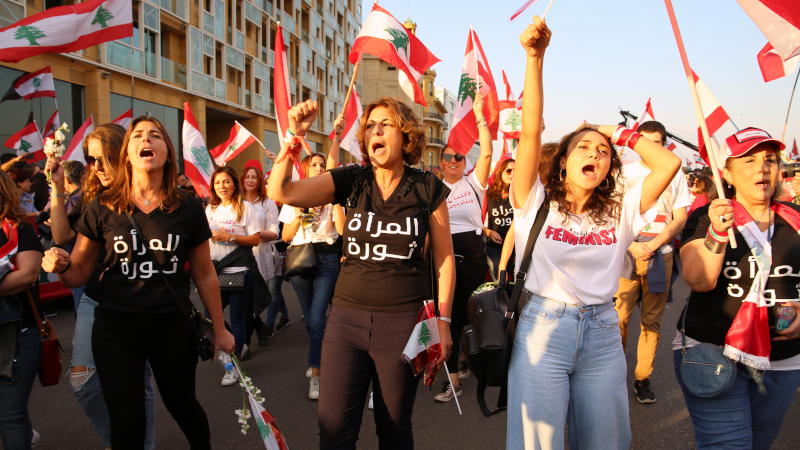In a country fractured by sectarianism and patriarchal control, Lebanese women seeking to enter public office face not only structural discrimination but also political violence — both visible and insidious. As Lebanon approaches municipal elections amid economic collapse, public distrust, and the absence of a functioning government, the status quo remains firmly in place: women’s leadership is still treated as a threat.
Lebanon’s power-sharing system — carved along sectarian and familial lines — does not simply reflect social divisions. It enforces them. In this landscape, women’s political participation is seen as disruption, not evolution. Despite decades of advocacy, legal reform, and donor-backed programs, women across Lebanon continue to be pushed aside, tokenized, or actively silenced.
This is not anecdotal. This is national.
Across governorates and communities, from the Bekaa to the coast, women describe the same forms of resistance. Their voices, shared here in their original Lebanese Arabic, speak to a deeply rooted political culture that refuses to see women as legitimate power-holders.
One woman, a former council member, decided to run for mayor. She had proven herself through years of service — but when she declared her candidacy, the reaction was swift and dismissive:
They said: “ Okay, we accept that you’re a council member, but mayor? No. For women, the most you can do is run NGOs — not municipalities.”
In other cases, the tokenization is explicit. Women are told their presence on the list is more than enough — as if one woman could absolve an entire structure of exclusion.
“Yeah, yeah, don’t worry, we already put one woman.” As if that’s too much.
Even when women are added to electoral lists, they are systematically excluded from meaningful roles — warned not to speak, lead, or shape vision.
“Okay, we added you to the list, but you are not ready to get involved in the program or the alliances.”
Religious power structures also play a critical role. In one case, a religious leader summoned the men of a town and declared that their sect could not — under any circumstance — be represented by a woman as mayor. He offered a male alternative as a ‘recommendation,’ but the threat was clear:
“There’s no way our sect can be represented by a woman as mayor. Don’t we have other options?” As if it’s an insult to the sect.
This is not just patriarchy. It is political violence — masked as tradition, justified by religion, and enforced by entrenched male elites. These testimonies are not limited to one region, one confession, or one party. They are Lebanon-wide.
What is most paradoxical — and telling — is the timing: at a moment when municipalities have no budgets, when mayors’ salaries hold no real value, and when basic service delivery is paralyzed, male actors are still scrambling to hold onto leadership positions.
Why do men still fight to control these hollow seats of power? Because patriarchy isn’t about purpose, it’s about position. Even when the power is stripped of resources, its symbolism matters — and keeping women out is a political end in itself.
It is time to flip the script.
The agency and protection of women must be defended not just by quotas and legal texts, but by directly confronting the forces that conspire to erase them — religious dogma, political capture, and gendered silence. Media, civil society, and the international community must refuse to normalize women’s marginalization, especially in moments of crisis.
Women, allies and changemakers — at every level — must spark bold, uncomfortable conversations not only in public forums, but also within local councils, townhall meetings, and family spaces where exclusion often begins. Confronting marginalization requires rewriting the texts that shape our realities — from everyday narratives and community decisions, to municipal decrees and national policies — and using both digital platforms and offline mobilization to amplify feminist voices and demand transformative change. It also means challenging men to engage in these conversations and recognize the discomfort as necessary for dismantling patriarchal norms.
Because every time a woman is excluded, Lebanon loses a chance to recover.
